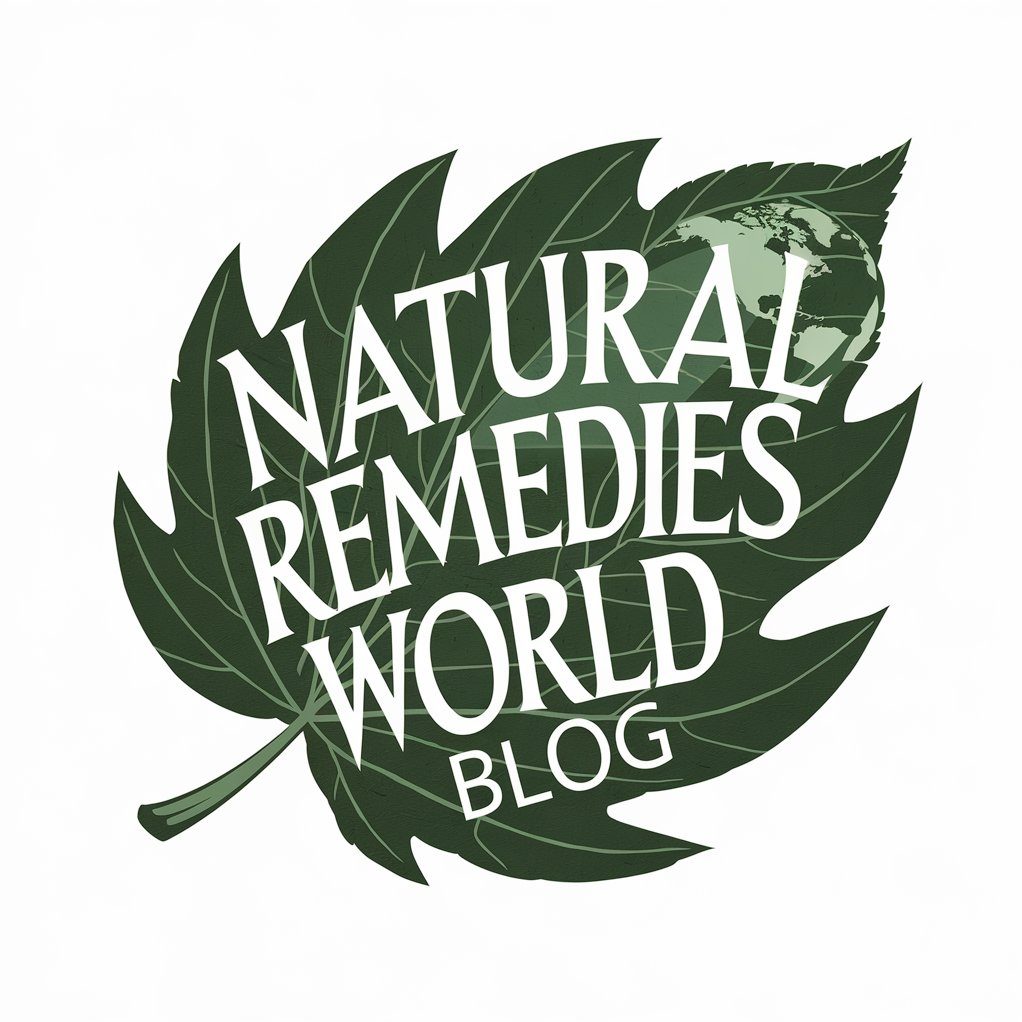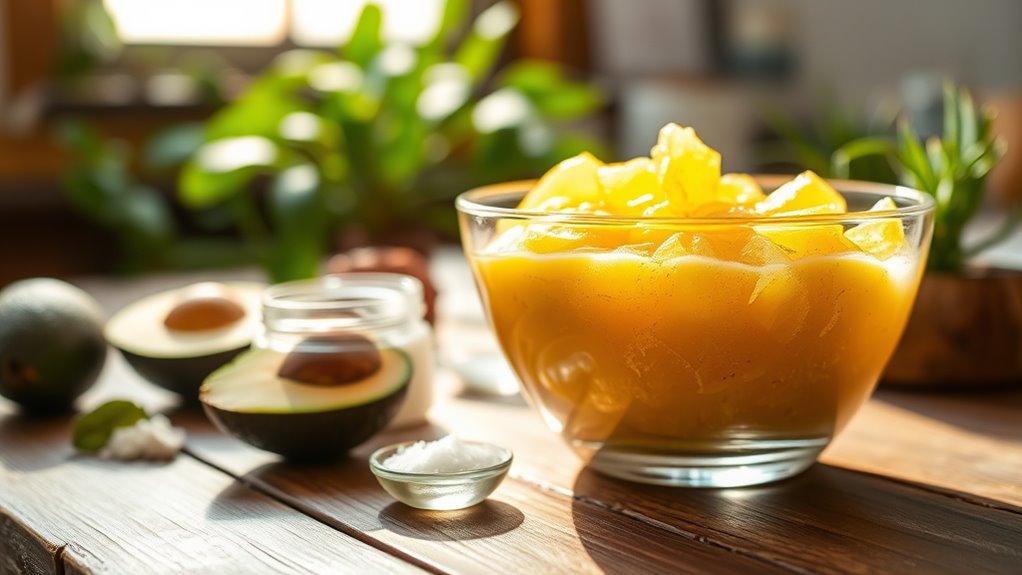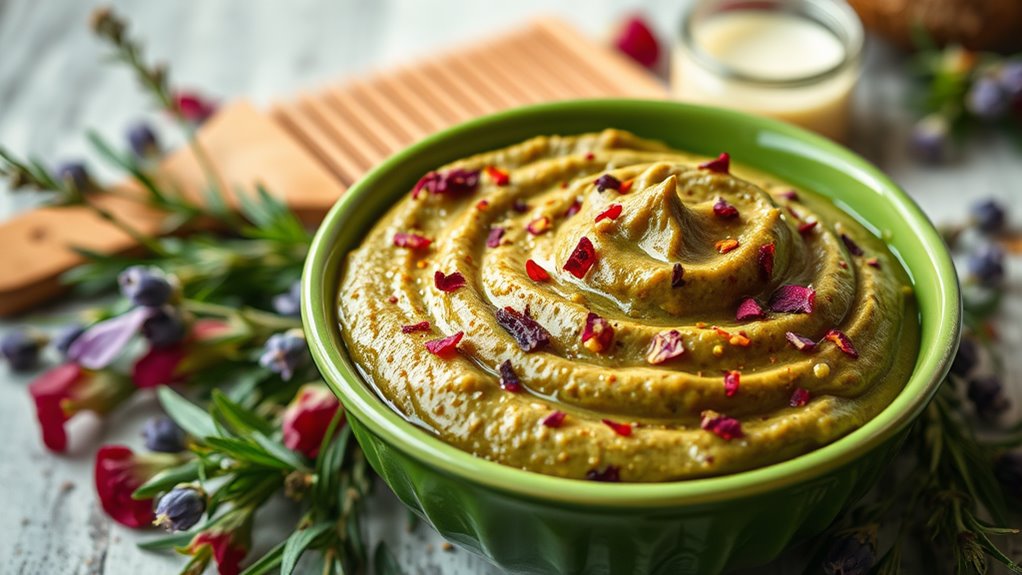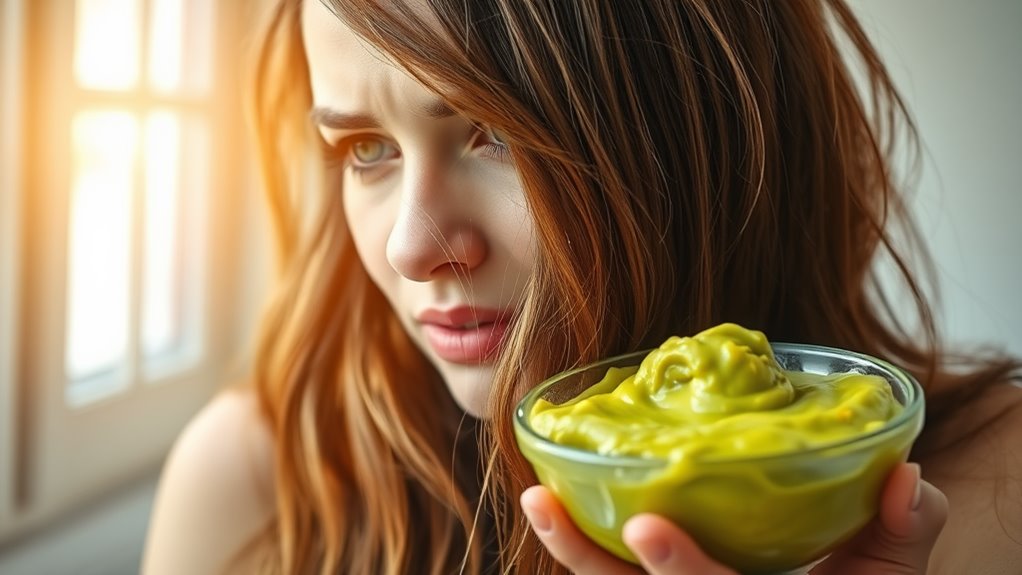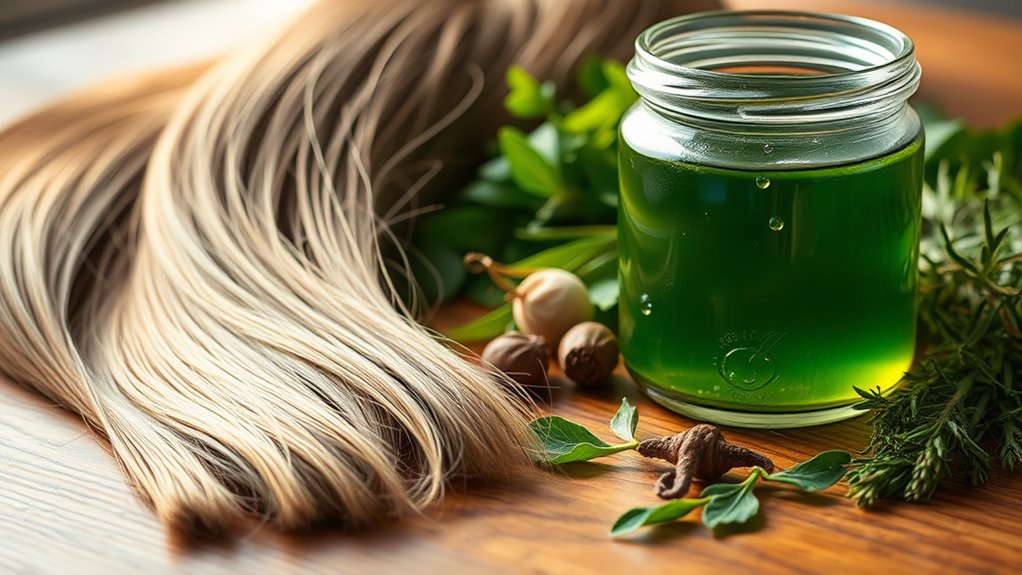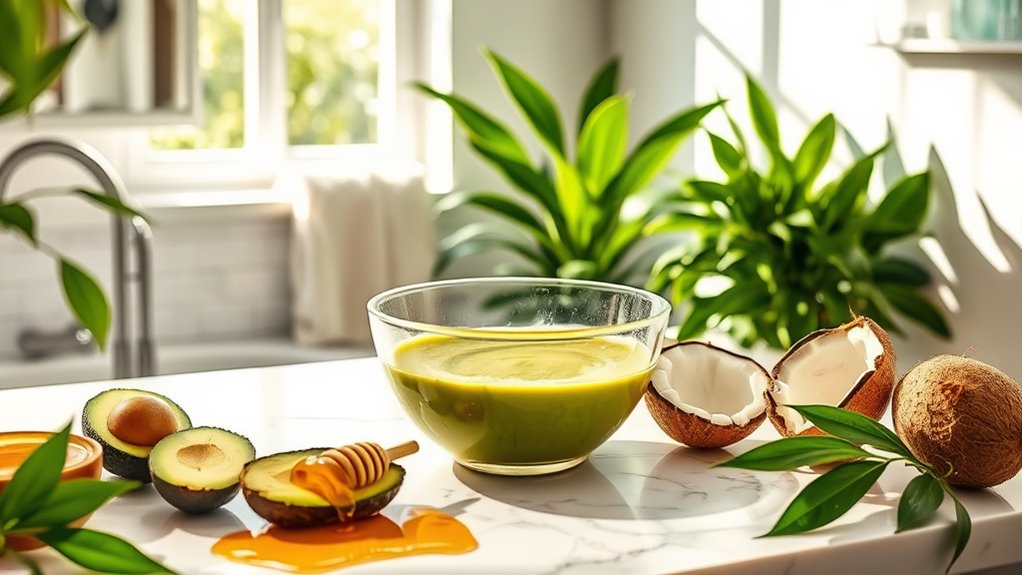Oily Hair No More! The DIY Solution You’ve Been Waiting For!
If you’re tired of battling oily hair, there are DIY solutions that can help restore balance and freshness. Start with apple cider vinegar rinses and baking soda scrubs to absorb excess oil. You can also try a lemon juice treatment to add a natural astringent effect. Incorporating these remedies, along with preventative measures like washing your hair properly and adjusting your diet, will help you regain control over your hair’s oiliness. Stick around to discover even more tips!
Understanding Oily Hair: Causes and Effects
Oily hair can feel like a constant battle, but understanding its causes and effects is the first step to regaining control. Your scalp produces sebum, a natural oil that keeps hair healthy, but sometimes it goes into overdrive.
Hormonal changes, stress, and diet can all influence sebum production, leading to greasy strands. Environmental factors, like humidity and pollution, can also exacerbate the issue.
You might notice that oily hair leads to other problems, such as dandruff or an itchy scalp, making it even more frustrating. By recognizing these causes, you can make informed choices about your hair care routine.
It’s crucial to address oily hair issues early on, so you can enjoy healthier, more manageable locks without feeling overwhelmed.
Essential Ingredients for DIY Hair Treatments
Finding the right ingredients can make a world of difference in managing oily hair. Using the right natural components not only helps absorb excess oil but also nourishes your scalp.
Here are three essential ingredients you should consider for your DIY hair treatments:
-
Apple Cider Vinegar: This powerful ingredient balances your scalp’s pH, reduces oiliness, and adds shine.
-
Aloe Vera Gel: Known for its soothing properties, aloe vera hydrates your hair while controlling oil production.
-
Lemon Juice: Packed with vitamin C, lemon helps reduce oiliness and adds freshness, making your hair feel light.
Incorporating these ingredients into your routine can revitalize your hair and keep oily roots at bay.
Top Home Remedies to Combat Oily Hair
If you’re struggling with greasy locks, trying out some effective home remedies can make a big difference.
One popular remedy is using dry shampoo; it absorbs excess oil and gives your hair a fresh look. You can also mix equal parts of water and apple cider vinegar, applying it to your scalp after shampooing to help balance oil production.
Another option is a clay mask—bentonite or kaolin clay draws out impurities and oil. Lemon juice diluted in water can also help; it’s a natural astringent that tightens hair follicles.
Lastly, consider using tea tree oil in your regular conditioner; it has antimicrobial properties that combat scalp oiliness.
Try these remedies and enjoy a lighter, fresher mane!
Step-by-Step DIY Treatments for Oily Hair
When you’re ready to tackle oily hair, several simple DIY treatments can help restore balance and freshness.
Here are three effective methods to try:
-
Apple Cider Vinegar Rinse: Mix one part apple cider vinegar with three parts water. After shampooing, pour the mixture over your hair, let it sit for a few minutes, then rinse thoroughly.
-
Baking Soda Scrub: Combine two tablespoons of baking soda with water to form a paste. Apply it to your scalp, massage gently, then rinse with warm water to absorb excess oil.
-
Lemon Juice Treatment: Mix the juice of one lemon with a cup of water. Apply it to your scalp, leave it on for 10 minutes, and rinse. This will help clarify and refresh your hair.
Preventative Measures for Oily Hair
After trying DIY treatments for oily hair, you might want to consider preventative measures to keep excess oil at bay.
Start by washing your hair regularly, but don’t overdo it; aim for every other day to maintain balance. Choose a lightweight shampoo specifically designed for oily hair, and avoid heavy conditioners that can weigh your hair down.
Limit the use of styling products, as they can contribute to buildup and oiliness. Additionally, watch your diet—reduce greasy foods and incorporate more fruits, vegetables, and whole grains.
Finally, avoid touching your hair too often; the oils from your hands can transfer and exacerbate the problem.
Tips for Maintaining Healthy, Balanced Hair
To maintain healthy, balanced hair, it’s crucial to establish a consistent hair care routine that suits your hair type.
This means understanding your hair’s unique needs and addressing them effectively. Here are three key tips to help you achieve that:
- Choose the Right Shampoo and Conditioner: Use products formulated for your hair type, whether it’s oily, dry, or normal.
Look for sulfate-free options to avoid stripping natural oils.
- Limit Heat Styling: Reduce the use of heat tools like straighteners and curling irons.
When you do style, use a heat protectant to minimize damage.
- Regular Trims: Schedule trims every 6-8 weeks to get rid of split ends and maintain hair health.
When to Seek Professional Help for Oily Hair
Are you struggling to manage persistent oily hair despite trying various home remedies? If so, it might be time to consider seeking professional help.
When DIY treatments fail to deliver results after several weeks, or if your oily scalp is accompanied by itching, redness, or hair loss, reaching out to a dermatologist or trichologist is crucial. These experts can evaluate your scalp health and identify underlying issues like hormonal imbalances or scalp conditions.
Additionally, if you notice a sudden change in oiliness or your hair’s texture, don’t hesitate to consult a professional. They can recommend specialized treatments or products that cater to your specific needs, helping you regain control over your hair’s condition.
Frequently Asked Questions
Can Oily Hair Be Caused by Hormonal Changes?
Yes, hormonal changes can definitely cause oily hair. When your hormones fluctuate, especially during puberty, menstruation, or pregnancy, your sebaceous glands can produce excess oil. Managing stress and diet can help balance these hormones.
Is It Safe to Use Essential Oils on Oily Hair?
Yes, it’s safe to use essential oils on oily hair. Oils like tea tree or lavender can help balance oil production. Just dilute them with a carrier oil to avoid irritation and achieve the best results.
How Often Should I Wash My Oily Hair?
You should wash your oily hair every two to three days. This frequency helps remove excess oil without over-drying your scalp. Adjust based on your hair type and lifestyle for the best results.
Can Diet Affect the Oiliness of My Hair?
Yes, your diet can definitely affect the oiliness of your hair. Foods high in sugar and unhealthy fats can increase oil production, while a balanced diet rich in vitamins and minerals helps promote healthier, less oily hair.
Are There Specific Hairstyles That Help Manage Oily Hair?
Yes, certain hairstyles can help manage oily hair. Opt for tighter hairstyles like braids or buns to keep hair off your face. You might also try loose styles that distribute oil more evenly, reducing shine.
